
The Mikado; or, The Town of Titipu is a comic opera in two acts, with music by Arthur Sullivan and libretto by W. S. Gilbert, their ninth of fourteen operatic collaborations. It opened on 14 March 1885, in London, where it ran at the Savoy Theatre for 672 performances, the second-longest run for any work of musical theatre and one of the longest runs of any theatre piece up to that time. By the end of 1885, it was estimated that, in Europe and America, at least 150 companies were producing the opera.

Richard Barker Cobb Temple was an English opera singer, actor and stage director, best known for his performances in the bass-baritone roles in the famous series of Gilbert and Sullivan comic operas.
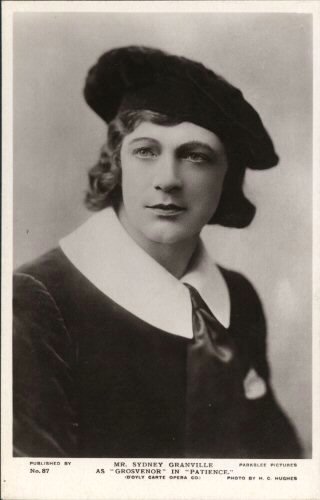
Sydney Granville was an English singer and actor, best known for his performances in the Savoy Operas with the D'Oyly Carte Opera Company.

Geraldine Ulmar was an American singer and actress, best known for her performances in soprano roles of the Gilbert and Sullivan operas with the D'Oyly Carte Opera Company.

Leo Sheffield, born Arthur Leo Wilson, was an English singer and actor best known for his performances in baritone roles of the Savoy Operas with the D'Oyly Carte Opera Company.

Charles Courtice Pounds, better known by the stage name Courtice Pounds, was an English singer and actor known for his performances in the tenor roles of the Savoy Operas with the D'Oyly Carte Opera Company and his later roles in Shakespeare plays and Edwardian musical comedies.
Leslie Rands was an English opera singer and actor, best known for his performances in baritone roles of the Savoy Operas with the D'Oyly Carte Opera Company. He married D'Oyly Carte soprano Marjorie Eyre in 1926.
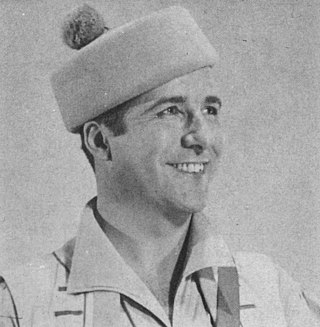
Alan Arthur Styler was an English opera singer, best known for his performances in baritone roles of the Savoy Operas with the D'Oyly Carte Opera Company.

Charles Kenningham was an English opera singer and actor best remembered for his roles in the 1890s with the D'Oyly Carte Opera Company.

John Jones Hewson, credited as Jones Hewson, was a Welsh singer and actor known for his creation and portrayal of baritone roles with the D'Oyly Carte Opera Company from 1894 to 1901.

Frederick Henry Hobbs was a New Zealand-born singer, actor and theatre manager. After performing as a concert singer in New Zealand and Australia, and in opera and musicals in Britain, he joined the D'Oyly Carte Opera Company in 1914. There he played leading baritone and bass-baritone roles in the Gilbert and Sullivan operas for six years. After touring in Australasia with the J. C. Williamson company, he returned to England and became the stage manager for D'Oyly Carte in 1923 and its business manager from 1927 until his death.

Jeffrey Ralph Skitch was an actor, operatic baritone and teacher best known for his performances and recordings with the D'Oyly Carte Opera Company from 1952 to 1965.

Thomas F. Lawlor was an Irish opera singer. In the 1960s, he became known for his performances in mostly baritone roles of the Gilbert and Sullivan operas with the D'Oyly Carte Opera Company. In the 1970s and 1980s, he performed over 60 operatic roles, usually as a bass-baritone, with various British opera companies. He was also a director in the opera department of the Royal Academy of Music and at Trinity College of Music. In later years, he moved to the US, where he continued to perform, direct and teach.

Frederick Federici was an Italian-born British opera singer known for his work in the bass-baritone roles of the Savoy Operas written by Gilbert and Sullivan. He is also remembered as a reputed theatre ghost in Australia.
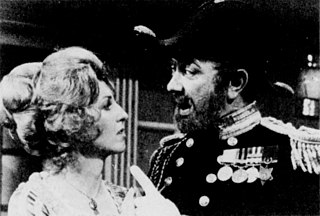
Michael Rayner was an English opera singer, best known for his performances in baritone roles of the Savoy Operas with the D'Oyly Carte Opera Company.
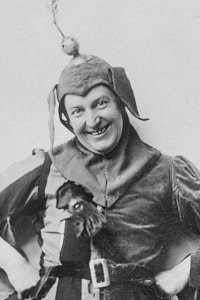
Charles Roby Walenn was an English singer and actor, best known for his performances in the comic baritone roles of the Gilbert and Sullivan operas with touring companies of the D'Oyly Carte Opera Company from 1887 to 1909 and later, off and on through the 1920s, with J. C. Williamson in Australia. Later in his career, he became known for London engagements in the title role of Rev. Spalding in The Private Secretary, which he first played at the Savoy Theatre in 1917, where he had never performed in the Savoy operas.

Rudolph Lewis was a bass-baritone known for creating several small roles in the Gilbert and Sullivan operas including Go-To in The Mikado (1885) and Old Adam Goodheart in Ruddigore (1887).
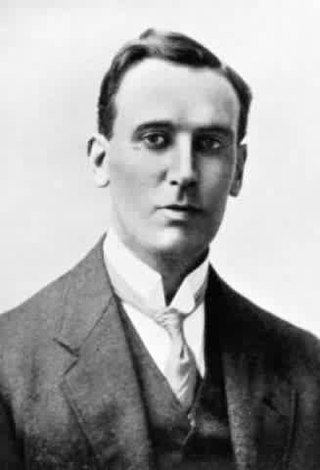
Leicester Tunks was an English opera singer remembered as a principal baritone with the D'Oyly Carte Opera Company from 1904 to 1916. He served in World War I and later ran a poultry farm.

George Villiers Arnold was an English actor and baritone singer, popular in Australia for his roles in Gilbert and Sullivan operas.
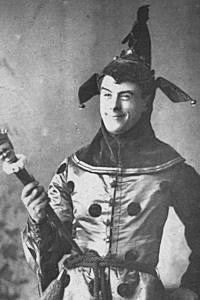
Lewis Cairns James was a Scottish-born baritone, actor, educator and opera producer most prominent during the Victorian and Edwardian eras. From 1887 to 1891 he performed with a D'Oyly Carte Opera Company touring company performing the comic operas of Gilbert and Sullivan before embarking on a successful career on the West End stage and as a teacher of elocution.





















